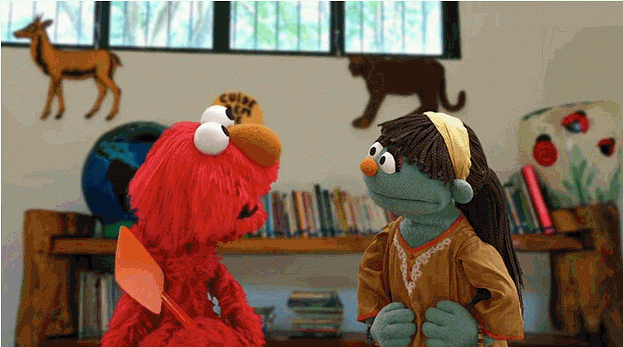In a push to enlist youngsters in the battle against Zika virus, the Pan American Health Organization (PAHO) enlisted the help of Muppets characters, amid several other developments with the virus, including reports of suspected sexually transmitted infections in two more countries—Argentina and New Zealand.
Serious message, important role for kids
PAHO unveiled two public service videos yesterday featuring Sesame Street characters Elmo and Raya, targeting families in Latin American and Caribbean locations.
One video walks children through the steps of preventing standing water accumulation and other measures to curb mosquito breeding grounds, while the other teaches them how to avoid mosquito bites, such as wearing long sleeves and pants, using insect repellent, and keeping doors and windows closed.
The 30-second spots are produced in English and Spanish and in Portuguese for Brazil, according to PAHO.
Marcos Espinal, PhD, PAHO's director of communicable diseases, said in a statement that the most important tool to battle the virus is controlling Aedes aegypti mosquitoes, and that since the insects live in and around houses, it takes a concerted effort with intensified community engagement to reduce their populations.
Sesame Workshop, a nonprofit group that produces Sesame Street, has been involved in health outreach campaigns before for PAHO, including a vaccination promotion campaign in 2009.
WHO weekly overview
In its weekly overview of outbreak developments, the World Health Organization (WHO) said today that likely sexual transmission of Zika virus has been reported by Argentina and New Zealand, raising the number of countries reporting that type of infection to five. France, Italy, and the United States reported earlier cases.
The geographic spread of the virus continues to increase globally, and as of yesterday, 34 countries in territories in the Americas had reported local transmission, the WHO said. It added that Colombia has reported 55,724 suspected cases since Oct 1—including 2,355 confirmed ones—but the outbreak there seems to have peaked during the first week of February, and illnesses are declining.
Today's report contains an added detail about a suspected microcephaly case in Panama, noting that the baby, who died shortly after birth and tested positive for the virus, had a neural tube defect.
Totals rise in US territories
The US Centers for Disease Control and Prevention (CDC) said yesterday that US territories experiencing local Zika virus spread are now reporting 341 cases, 43 of them involving pregnant women. Most of the cases are in Puerto Rico. The total is up 58 cases from the previous week, including 8 new cases in pregnant women.
In the continental United States, 273 travel-linked cases have been reported so far, 19 in pregnant women and 6 involving sexual transmission. Florida, New York, and Texas are the states reporting the most illnesses. Since the previous week, 15 more illnesses and 1 more involving a pregnant woman have been reported.
Research, funding, travel updates
- Real-time results of Zika virus experiments on macaques with the African lineage at the University of Wisconsin, Madison, have so far found that the virus persists in urine after it is no longer detectable in blood. Findings also show that infected animals seem to have lower plasma viremia than seen with the Asian lineage. Michael Osterholm, PhD, MPH, director of the Center for Infectious Disease Research and Policy, the publisher of CIDRAP News, said the study is important, because it will tell if earlier infection with the African virus protects against the Asian strain responsible for the outbreak in the Americas.
- Congress left Washington for spring break yesterday with no vote on President Obama's $1.9 billion emergency Zika funding request, despite pleas from Democratic representatives to stay in the Capitol for a vote, STAT News reported yesterday. The request has been held up by insistence from Republicans that officials consider diverting Ebola response money to fill some of the request. Top federal health officials have warned that, without congressional action, they will need to siphon funds from other important health efforts to keep Zika measures going.
- Vietnam raised its Zika alert level after an Australian tourist got sick with the disease after visiting the country, Channel NewsAsia reported today. The tourist visited several cities in Vietnam between Feb 26 and Mar 3 and was in the country during the Zika incubation period, according to the report.
See also:
Mar 23 PAHO statement
Mar 24 WHO Zika situation report
CDC Zika virus page





















